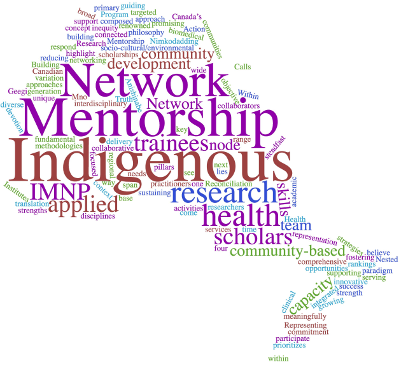Sonia Wesche - Research Projects
C4FS: Community Capacity for Climate Change and Food Security action in the NWT
Funding: CIHR
Location: Inuvialuit Settlement Region, NWT - Paulatuk, Tuktoyaktuk
This community-based research aims to learn from and enhance community capacity to address place-based priorities, support climate change and food security action, and inform the development of support-structures at local, regional, and territorial scales. Paulatuk and Tuktoyaktuk are 2 of 6 participating communities.
Bringing Research Home: Reclaiming Research to Tell the Story of Climate Change in the Kluane First Nation Traditional Territory
Funding: SSHRC & Canadian Mountain Network
Location: Yukon - Burwash Landing, Destruction Bay
Centred on Kluane First Nation (KFN) values, knowledge and needs, this project collaboratively studies how a self-governing First Nation can enhance its ability to actively drive and participate in research. Objectives: 1. Compile existing climate change research that has been conducted in KFN Traditional Territory. 2. Co-develop a process to empower KFN to have greater control over research in their Traditional Territory. 3. Develop and employ tools to facilitate knowledge mobilization of climate change research in the region.
Kluane Climate Futures: Supporting Adaptation in Kluane First Nation Traditional Territory
Funding: Polar Knowledge Canada
Location: Yukon - Burwash Landing, Destruction Bay
Kluane Climate Futures is a collaborative project between Kluane First Nation, Yukon University, and researchers James King (Université de Montreal) and Sonia Wesche (University of Ottawa). This project intends to:
Engage KFN citizens in discussions to understand how environmental changes are impacting the local community, including people’s livelihoods and relationships with the land.
Draw on both KFN knowledge and climate models to create story- and art-based scenarios of possible future change for the Kluane region.
Use interactive methods to involve KFN citizens, especially youth, in planning for climate change.
The National Indigenous Climate Compass (NICC)
The National Indigenous Climate Compass (NICC): A collaborative tool to empower Indigenous Communities s in visualizing how climate change hazards are affecting their traditional territories.
The NICC is a collaborative tool co-led by the Center for Indigenous Community Infrastructure at the University of Ottawa, Indigenous Community Partners and IndigenousTech.ai.
Podcast Episodes: Indigenous Health & Food Systems
Funding: University of Ottawa & Carleton University
In collaboration with Marylynn Steckley (Carleton U) and RA Victoria Marchand, we co-developed two podcast episodes focused on Indigenous health, food systems, and research relationships. A key goal was to elevate the voices of Indigenous scholars. The episodes ‘What are Indigenous Foods?‘ and ‘Environmental Dispossession’ are hosted by Handpicked: Stories from the Field.
Water Security for Northern Peoples: An interdisciplinary approach to understanding the influence of environmental change on freshwater sustainability
Funding: CIRNAC
Location: Nunavut - Igloolik, Hall Beach, Coral Harbour
Working with the Inuit communities of Igloolik, Hall Beach, and Coral Harbour, we seek to understand how freshwater supply and capacity will be influenced by continued population growth and climate change, and support improved water management. We highlight Inuit perspectives about water use and treatment, water-related health concerns, and potential alternative water sources.
Tracking Change: Local and Traditional Knowledge in Watershed Governance
Funding: SSHRC
Location: NWT
As part of the broader TC project, we are working with knowledge-holders and youth in the DehCho (NWT) to understand how they track change in freshwater systems, share inter-generational knowledge, and how to apply this knowledge for improved water governance. Watch youth on-the-land camp videos produced by PhD Candidate, Stephanie Woodworth: Decho Youth Ecology Camp & Northern Water Futures
Indigenous Mentorship Network Program - Ontario
Funding: CIHR
The IMN is a five-year, CIHR-funded health training program to provide Indigenous scholars and trainees with high quality mentorship, training, and opportunities to engage in Indigenous health research. The Network involves 13 research institutions in Ontario.
Eric Crighton (on leave)- Research Projects
The Prenatal Environmental Health Education (PEHE) Collaboration
Funding: CIHR
Location: Canada
The goal of the PEHE Collaboration is to improve our understanding of factors that promote and inhibit the uptake of prenatal environmental health preventive care activities across diverse prenatal care, community, occupational and environmental contexts in Canada. This understanding will inform development of patient-centred environmental health education and other knowledge translation strategies suitable for clinical practice.
Water Security for Northern Peoples: An interdisciplinary approach to understanding the influence of environmental change on freshwater sustainability
Funding: CIRNAC
Location: Nunavut - Igloolik, Hall Beach, Coral Harbour
Working with the Inuit communities of Igloolik, Hall Beach, and Coral Harbour, we seek to understand how freshwater supply and capacity will be influenced by continued population growth and climate change, and support improved water management. We highlight Inuit perspectives about water use and treatment, water-related health concerns, and potential alternative water sources.
iCARE-PD
This multidisciplinary, international project aims to address complex care in Parkinson disease through the development of an integrated community-centered care delivery model. As the lead of the health geography component of this project, Dr. Crighton is examining patterns of Parkinson Disease prevalence, healthcare utilization, and factors that influence healthcare utilization. Methods include the spatial analysis of administrative health data, and national surveys of Parkinson Disease patients in partner countries.
Funding: EU Joint Programme on Neurodegenerative Research and CIHR
Location: Canada, Portugal, Germany, Czech Rep, Spain, France










